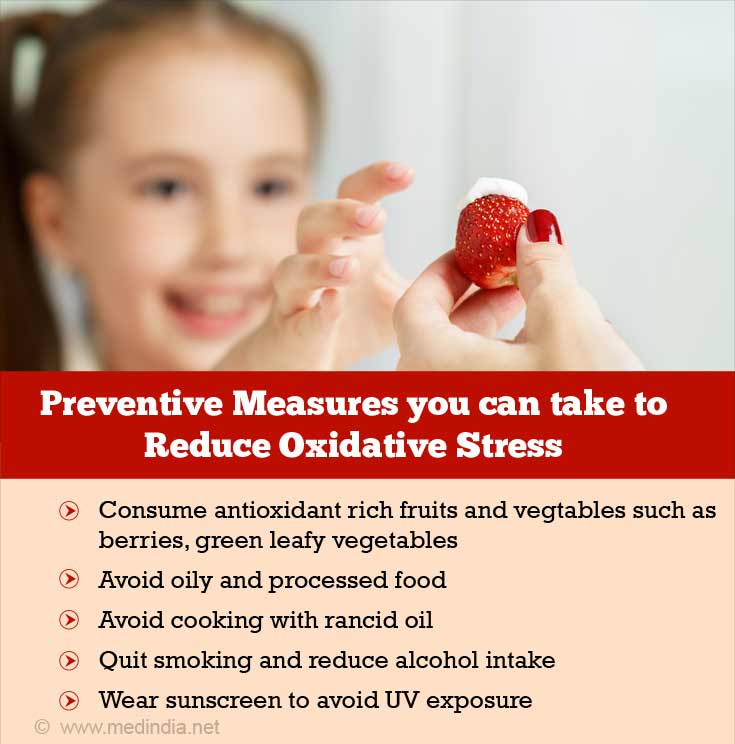How do you Diagnose Oxidative Stress?
Tests to measure oxidative stress (OS) of cells are specialized tests and may not be available in all laboratories. There are several techniques to measure OS. Standard OS measurement methods include direct and indirect assessment of OS. The direct methods directly estimate ROS levels while the indirect methods measure the levels of the products formed due to oxidation of cellular components by free radicals and an indirect measure of reactive oxygen species (ROS).
| Direct Methods | Indirect Methods |
|
|
How to Manage and Prevent Oxidative Stress?
It is not possible to totally avoid free radical exposure and oxidative stress. Past the middle age, anti-oxidant supplements can help and work as free radical scavengers. These supplements in the diet include – Vitamin C, Vitamin E, beta-carotene, coenzyme Q10, and trace elements including selenium and zinc.
The following measures may reduce oxidative cell damage and diseases associated with free radical cell injury.
- Consuming a diet rich in natural antioxidants (at least 5 servings per day) such as -
- Berries, cherries, tomatoes, olives, citrus fruits
- Dark green leafy vegetables, broccoli, carrots, prunes, avocados
- Whole grains and nuts,
- Fish
- Onion, garlic
- Green tea
- Melatonin
- Turmeric
- Cinnamon
- Avoid oily and processed food
- Quit smoking and reduce alcohol intake
- Regular practice of stress-busting techniques such as meditation and yoga
- Avoid cooking with rancid or stale oil
- Regular exercise
- Maintain a good sleep routine and normal biological rhythm
- Eat organically grown food free from chemicals and pesticides
- Practice eco-friendly measures such as avoiding plastics, carpooling whenever possible, safe toxic waste disposal
- Wear sunscreen to avoid ultraviolet ray exposure
- Avoid overeating
- Prompt treatment of infections








